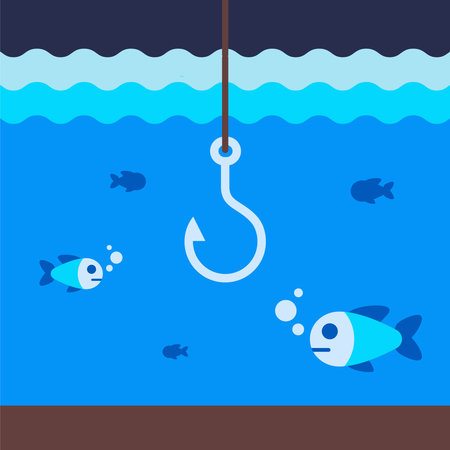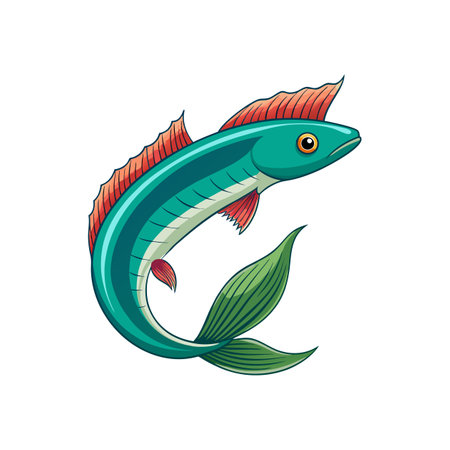Introduction to Float Fishing in the UK
Float fishing is more than just a method—it’s an enduring tradition woven into the very fabric of British angling culture. From the peaceful banks of winding canals to the energetic flow of rivers bustling with wildlife, float fishing has long been cherished by generations of anglers across the UK. This classic approach invites both beginners and seasoned fishers to connect with nature, enjoy moments of quiet reflection, and share stories with family and friends by the water’s edge.
What makes float fishing so special in Britain is its remarkable versatility. Whether you’re casting a line on a misty morning along the Grand Union Canal or joining a friendly competition on the River Trent, float fishing offers something for everyone. It’s not just about catching fish—it’s about embracing the gentle pace of life outdoors, learning patience, and appreciating the simple joys that come with each outing.
The UK boasts a rich heritage of float fishing clubs and societies, many dating back over a century. These groups foster community spirit, encourage responsible angling practices, and preserve beloved local traditions. Float fishing is also uniquely British in its variety; it adapts beautifully to different waters, from still lakes dotted with lilies to lively urban rivers where history and nature meet.
To help you get started on your own float fishing adventure—or perhaps rediscover its charms—this guide will uncover essential tactics and gear tailored for success on British waters. In the coming sections, we’ll explore what makes float fishing in the UK so rewarding, offer practical tips for every skill level, and share advice rooted in years of warm-hearted experience beside some of Britain’s most iconic waterways.
Essential Gear for Successful Float Fishing
If you’re new to float fishing in the UK, gathering the right gear is half the battle—and an absolute joy for many of us! British waters and weather can be a little unpredictable, so it’s worth investing in tackle that’s both practical and reliable. Let’s look at what you’ll need to set yourself up for a proper day by the water.
Must-Have Float Fishing Tackle
| Item | Why It’s Important | UK Recommendations |
|---|---|---|
| Rod | Provides casting distance and control | 11-13ft float rods are ideal for most British venues; choose lighter action for silver fish, heavier for bigger species like carp or tench |
| Reel | Smooth line retrieval and drag system | Match reels with a reliable clutch are perfect—look for models suited to 2-6lb mainline |
| Floats | Indicates bites and supports bait presentation | Stick floats for running water, wagglers for stillwaters—carry a selection as conditions often change on British days out |
| Bait | Attracts your target species | Maggots, casters, sweetcorn, and bread are classic choices; always check local rules as some baits may be restricted in certain venues |
| Clothing | Keeps you dry and comfortable all day long | A decent waterproof jacket, wellies or waterproof boots, and layers—British weather can go from sunshine to drizzle in no time! |
Tackle Tips from UK Anglers
If you’re popping down to your local tackle shop, don’t be shy about asking for recommendations. Most shops stock kit perfectly tailored to local waters—from lightweight rods for delicate roach fishing on the canal to sturdier setups for battling lively river chub. And when it comes to clothing, always bring an extra jumper or raincoat—even if the morning looks bright!
A Quick Gear Checklist Before You Go:
- Main rod and reel (plus spare spool if possible)
- Range of floats suitable for running and stillwater
- Tackle box with shot, hooks, disgorger, scissors, and plummet
- Bait tub with your chosen bait (and keepnet if allowed)
- Weather-appropriate clothing and suncream (yes, sometimes we do get sunshine!)
With these essentials sorted, you’ll be ready to face whatever the great British outdoors throws your way—and enjoy every minute by the water’s edge.

3. Top Float Fishing Tactics for British Waters
Float fishing across the UK is a wonderful way to connect with our unique waterways, from tranquil canals to bustling rivers and lakes. To help you get the most out of your sessions, let’s explore some effective tactics and tips especially suited to British waters, focusing on watercraft, float selection, shotting patterns, and reading different venues.
Understanding Watercraft
Watercraft is all about reading the water and understanding fish behaviour. In Britain, weather and seasonal changes play a huge role in where fish will be. Look for features like overhanging trees, reed beds, or changes in water flow—these are classic fish-holding spots. On stillwaters and canals, pay attention to shelves and drop-offs; while on rivers, slower glides and eddies often hold feeding fish.
Choosing the Right Float
Selecting the correct float can make or break your session. Here’s a handy table outlining popular float types in the UK and when to use them:
| Float Type | Best Venue | Main Advantage |
|---|---|---|
| Waggler | Lakes & Slow Rivers | Great for distance casting and stability in wind |
| Stick Float | Flowing Rivers | Excellent control in moving water |
| Pole Float | Commercial Fisheries & Canals | Sensitive bite indication, perfect for pole fishing setups |
| Balsa Loafer | Fast Rivers | Stable in turbulent flows, visible at distance |
Mastering Shotting Patterns
The way you set up your shotting (split shot weights) affects how naturally your bait behaves. For shy-biting roach on a canal, try a strung-out shotting pattern to let your bait fall slowly. In contrast, if you’re after chunky chub on a river, a bulk shotting pattern gets the bait down quickly through fast-flowing water. Always adjust your shotting based on depth and current strength.
Reading Different Venues
No two venues are quite the same in Britain! Here’s what to look for:
- Canals: Fish tight to far-bank features or moored boats. Early morning or late evening often see the best bites.
- Lakes: Target margins or islands; watch for bubbles or surface movement indicating feeding fish.
- Rivers: Fish near bends, undercut banks, or just downstream of obstructions where food collects.
- Ponds: Try shallow margins in summer and deeper holes in winter.
By tailoring these tactics to your local waters and experimenting as you go along, you’ll soon find yourself unlocking more of those memorable days by the bank—just as generations of UK anglers have before you!
4. Choosing the Right Spot: UK Locations and Species
One of the joys of float fishing in the UK is discovering just how diverse our waters are, from tranquil village ponds to bustling urban canals and winding rivers. Choosing the right peg (fishing spot) can make all the difference between a quiet afternoon and an unforgettable day’s haul. Here’s how you can up your chances by picking the perfect spot, timing your trips, and targeting popular UK species.
Advice on Picking the Perfect Peg
When selecting a peg, consider factors like water depth, flow, and natural features such as overhanging trees or reed beds, which attract fish seeking food and shelter. On rivers, look for slower-moving stretches near bends or behind obstructions where fish rest out of the current. Lakes and ponds often see more activity near features like lily pads or sunken branches. Don’t hesitate to ask locals or check club maps for recommendations—UK anglers are famously friendly!
Understanding the Best Times of Year
| Season | Water Conditions | Best Species to Target |
|---|---|---|
| Spring | Mild temperatures; fish become active after winter | Roach, Perch |
| Summer | Warm water; early morning or late evening best | Bream, Tench, Carp |
| Autumn | Cooling down; fish feeding up before winter | Bream, Roach, Perch |
| Winter | Colder and clearer; patience needed but rewards possible | Roach, Perch (on milder days) |
Popular Species in UK Waters
If you’re new to float fishing or bringing the family along, it’s helpful to know which species are commonly found in British waters:
- Roach: Found almost everywhere—rivers, lakes, canals—these silvery fish are perfect for beginners.
- Perch: Recognisable by their stripy bodies and spiky fins, perch love shaded areas and underwater structures.
- Bream: Often shoaling together in deeper waters, bream offer a satisfying challenge as they grow to impressive sizes.
Family Tip:
If youre planning a family outing, check for locations with good facilities such as parking, toilets, and safe access points. Many local angling clubs provide dedicated pegs for youngsters or those with mobility needs—another reason why float fishing is such a beloved pastime across generations in the UK!
5. Etiquette and Tradition: The British Way of Angling
Float fishing in the UK is about so much more than just catching fish; it’s a cherished pastime steeped in tradition and good manners. On the riverbank, you’ll find that angling etiquette is as important as your tackle box. Let’s explore how to enjoy your day by the water while respecting nature, fellow anglers, and those timeless British customs that make float fishing truly special.
Respecting Your Surroundings
Caring for the great outdoors is at the heart of British angling. Always take your litter home, avoid damaging plants, and leave no trace of your visit. If you see any wildlife—whether it’s a curious swan or a darting kingfisher—give them plenty of space to thrive undisturbed.
Being Considerate to Other Anglers
Sharing the water with others is part of the fun. It’s customary to greet nearby anglers with a friendly nod or quiet “hello.” Keep noise to a minimum and respect each other’s space—no one likes a line tangler! When setting up, give everyone enough room, especially on narrow banks.
Do |
Dont |
|---|---|
| Ask permission before fishing close to someone | Cast across another person’s swim |
| Offer help if someone needs it | Loudly celebrate every catch |
| Keep dogs under control | Block pathways with gear |
| Share local tips when asked | Disturb nesting birds or wildlife |
The Traditions That Bind Us
The UK has a long history of angling clubs and waterside camaraderie. Many waters require membership or day tickets—always check before you fish. Respect closed seasons and size limits, both set in place to protect fish stocks for generations to come. And don’t forget, traditional float fishing often means returning your catch safely to the water—a practice as British as a cup of tea by the riverside.
A Final Word: Enjoy, Respect, Repeat!
Whether you’re sharing stories with fellow anglers or soaking up the peace of an early morning cast, following these simple guidelines keeps our beloved sport welcoming for all. Float fishing in the UK isn’t just about what you catch—it’s about being part of something bigger, a gentle tradition passed down through families and friends for centuries.
6. Bringing the Family: Making Float Fishing a Shared Adventure
One of the real joys of float fishing in the UK is sharing the experience with family and friends. There’s something magical about spending a day by the water, teaching your children or loved ones how to cast, watching their excitement as they spot their first bite, and creating memories that last a lifetime. Here are some tips to make your float fishing trip comfortable, fun, and truly memorable for everyone involved.
Why Float Fishing Is Perfect for Families
Float fishing is an ideal introduction to angling for kids and beginners because it’s simple to learn, relaxing, and often provides quick rewards. Many local UK ponds, lakes, and slow-moving rivers are well-stocked and safe for families. Plus, float fishing doesn’t require heavy gear or complex techniques—making it accessible to anglers of all ages.
Top Tips for a Family-Friendly Day by the Water
Tip |
How It Helps |
|---|---|
Choose Easy-to-Reach Locations |
Pick venues with good parking, safe banks, toilet facilities, and picnic areas. Many UK fisheries cater specifically to families. |
Pack Comfort Essentials |
Bring folding chairs, picnic blankets, sunscreen, snacks, drinks, and waterproofs—our weather can be unpredictable! |
Use Simple Tackle |
A lightweight rod and basic float set-up keep things easy for small hands to manage. |
Keep Sessions Short |
Younger children may tire quickly. A couple of hours in the morning or afternoon is often just right. |
Add Fun Extras |
Pond-dipping nets, wildlife spotting sheets, or a friendly competition (biggest catch!) add extra excitement. |
Teach Conservation |
Show kids how to handle fish gently and explain why we return them safely—instilling respect for nature. |
Making Memories: Little Touches That Matter
Don’t forget your camera or smartphone to capture those proud smiles with their first fish! Bring a flask of tea or hot chocolate—there’s nothing quite like a warm cuppa by the water’s edge. And if you’re feeling especially British, pack some sarnies or a homemade Victoria sponge for an on-the-bank treat. Ending the day with happy faces and tired feet means you’ve done it right!
7. Wrapping Up: Resources and Next Steps
As you embark on your float fishing adventure across the UK, connecting with local communities and tapping into trusted resources will truly enhance your experience. To help you get started or take your skills further, here are some handy suggestions for angling clubs, fisheries, and beginner-friendly guides that offer support, camaraderie, and practical advice.
Join a Local Angling Club
Becoming part of a local angling club is one of the best ways to immerse yourself in the culture of UK fishing. Clubs often organise friendly matches, social events, and coaching sessions for new anglers—making it easy to pick up tips and make friends who share your passion.
| Club Name | Location | Beginner Support |
|---|---|---|
| Leeds & District ASA | Yorkshire | Coaching, Open Days |
| Bristol Amalgamated Anglers | Bristol | Junior Programmes |
| London Anglers Association | Greater London | Tutorials & Taster Sessions |
Visit Accessible Fisheries
The UK boasts a wealth of well-managed fisheries where beginners are warmly welcomed. Many provide day tickets, equipment hire, and even on-site tuition. Here’s a quick glance at some popular options:
| Fishery Name | Region | Facilities for Beginners |
|---|---|---|
| Makins Fishery | Warwickshire | Tackle Hire, Coaching Available |
| Barston Lakes | Birmingham Area | Café, Day Tickets, Family-Friendly Piers |
| Aldenham Country Park Fishery | Hertfordshire | Peg Guides, Staff Support |
Explore Online Resources & Further Reading
If you’re keen to learn more from home, there’s a treasure trove of online resources tailored to UK float fishing enthusiasts. These include step-by-step video tutorials, regional forums for advice on local waters, and up-to-date regulations:
- The Angling Trust: The national governing body offers guidance on everything from best practices to conservation.
- YouTube Channels: Look out for British creators like “Fishing Tutorials” and “The Friendly Fisherman” for approachable how-tos.
- Online Forums: Websites such as Maggotdrowning.com are packed with friendly banter and expert answers to your burning questions.
Your Next Steps on the Bankside Adventure
No matter where you live in the UK, there’s a supportive community ready to welcome you into the wonderful world of float fishing. Whether you’re joining a club, booking a session at a fishery, or simply browsing online tips over a cuppa at home, every outing adds new memories and skills. Tight lines and happy fishing!


